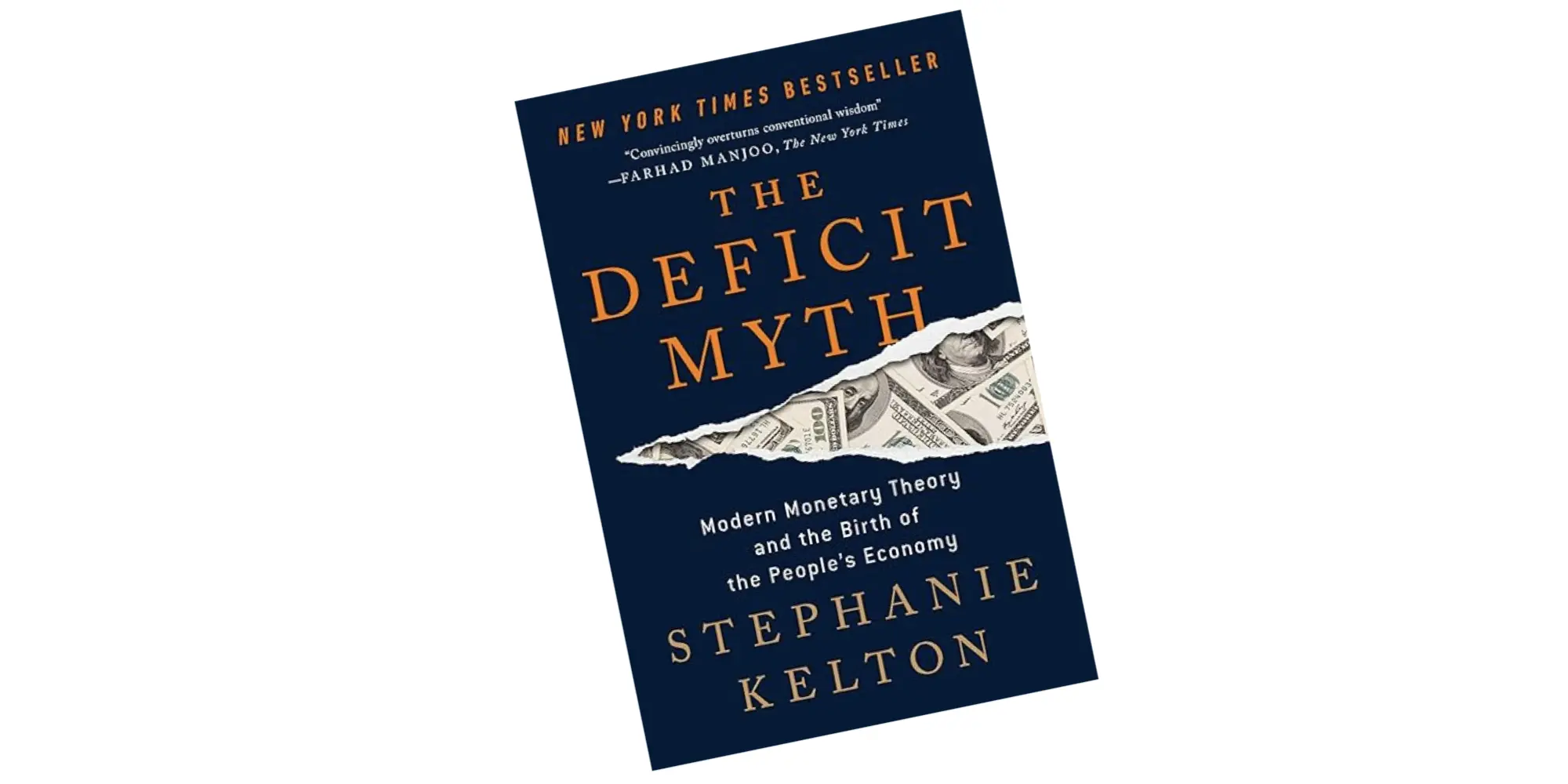
Book Reviews
Book Review: “The Deficit Myth” by Stephanie Kelton
A couple of months ago, I reviewed Scott Santens’ Let There Be Money. In that book, he mentioned The Deficit Myth from author Stephanie Kelton. Having enjoyed Santens’ work overall, I decided to continue my education on Modern Monetary Theory (MMT) by downloading Kelton’s audiobook.
Subtitled Modern Monetary Theory and the Birth of the People’s Economy, Kelton’s book serves as a deep dive into the concept of MMT and how it differs from our widely accepted notions of the economy. For those unfamiliar, the basic idea is that, as a sovereign nation that has the ability to issue its own currency, there’s no reason to worry about national debt. In fact, she argues that the U.S. could erase the debt immediately if it wanted… but explains why that also might not be a good idea. Thus, although it’s common for us to think about the government’s budget as we do our own, that thinking (according to Kelton and other MMT economists) is dead wrong.
If that description still has you scratching your head a bit, luckily Kelton offers a number of illustrative examples and metaphors. This includes the bathtub concept (which Santens highlighted in his book) in which taxes act as a drain and government spending is the flowing water. There’s also a comparison to the game of Monopoly, with Kelton pointing out that players start with money in hand and the bank — per the rules — cannot run out of funds. Overall, I think these comparisons do an effective job of helping even the least economically inclined readers understand MMT and the arguments Kelton is making.
While it’s true that Kelon has worked as Chief Economist for Democrats, The Deficit Myth takes aim at both sides of the aisle, with the author pointing out that Barack Obama and even Bernie Sanders have often made statements that go against MMT’s ideals. Moreover, rather than taking potshots at specific politicians (although there are a few criticisms along the way), Kelton highlights some foundational issues that have made implementation of MMT more difficult. This isn’t to say that the book is perfectly even-handed when it comes to politics, but I wouldn’t say that it tries to offend either.
On that note, one of my favorite parts of the book was where Kelton coins a new term. You may be familiar with the titles “deficit hawk” or “deficit dove.” However, Kelton describes herself as a “Deficit Owl.” Not only does this fit the bird theme but, as she explains, the owl’s ability to see 360 degrees also makes it a perfect comparison for MMT economists.
Another interesting chapter in the book finds Kelton shifting focus to other types of deficits that are a problem — and how switching to an MMT model could allow us to address them. These include fixing joblessness, tackling climate change issues, and more. Here is also where Kelton admits that not all of the ideas she presents may actually be good ones, but that the possibilities are worth exploring. I found this honesty refreshing and realistic, which only raised my opinion of her overall.
Notably, while there are several mentions of the 2008 financial crisis throughout the book, one topic you won’t hear reference to is COVID. That’s because the book was initially published in June 2020 and was likely done months beforehand. Personally, although I’m sure Kelton has done interviews where I could hear how her MMT ideas could have helped with that situation, I’m hoping for a second edition where those topics can be explored.
On the whole, I’d say that Kelton’s arguments persuaded me on the potential that modern monetary theory presents. Yet, I can’t quite say the same for her guaranteed employment pitch. Like Santens, this is where I personally think a universal basic income would be more useful/effective. But, luckily, there’s no rule that says you need to agree with everything a book says.
After reading (or listening to) The Deficit Myth: Modern Monetary Theory and the Birth of the People’s Economy, I can see why it’s already become such an influential work. Like other books I’ve enjoyed, this one got me thinking and made me question some of my preconceived beliefs. I also found the book to be uplifting, in a way, as it presents a certain amount of optimism about what’s possible — even if it’s an uphill march, to be sure. Ultimately, whether you come away from the book as an MMT true believer or thinking that it’s pure bollocks, I still think The Deficit Myth is worth a read.

- Presents its concepts clearly and understandably
- Looks at both sides of the aisle politically
- Offers ideas beyond the main conceit of MMY
- Could use an update to incorporate lessons from COVID









